On the run: the best foods to eat for runners
Health and Wellbeing
Your cart is empty.
SUBTOTAL
£0.00

Health and Wellbeing
If there was one thing that increased during lockdown, it was the number of runners out there. Over the course of a few weeks, suddenly everyone was out running around, making the most of their daily allowance of exercise outside the house (of course, it always helps when the weather is nice!) For many, the habit has stuck. For many, this was always the habit. Running is part of many people’s lives partly because it’s so accessible and easy. All you really need is a pair of good running shoes and off you go.
Naturally, just like any other form of exercise, the foods you eat can have a big impact on your performance. So, if you’re really getting into the groove and looking for ways to improve and smash some PB’s, it may be time to look at your diet. There are plenty of foods out there that can really make a difference. Below, we’ve listed the very best food to eat for runners.
Firstly, let’s take a quick look at the different nutrients that should all be part of a balanced diet.
Despite what you might be told in weight-watching classes, carbs are essential. They’re the best source of energy for runners and should make up between 60% to 65% of your total calorie intake.
Why? They’re the best at providing both your quick and long-lasting energy supplies. Imagine them as fuel – your body needs them to run.
Protein should make up anywhere between 10% to 35% of your daily intake. It’s used for some energy supply alongside carbs, but most importantly, it helps to repair damaged muscle tissue. When you’re running and putting your muscles under strain, the tissue naturally breaks. Protein is the essential nutrient that encourages the muscle to repair itself and grow back, stronger and better than before.
On top of this, it also helps in keeping you feeling full for longer.
Like carbs, fat is another one that we so often misunderstand and get wrong. Fat, in the right amounts, is essential. You should only look to have about 20% to 35% of your total intake coming from fats and ideally, these should be low saturated and low in cholesterol.
In some of the foods mentioned below such as nuts, oils and fish, essential fats such as omega-3s are prominent. These are great in maintaining your overall health and preventing disease. Don’t neglect your fats!
Vitamins are essential not just for running but for every part of life. You won’t get energy from them directly, but they help to neutralize damazing compounds that may be produced through exercise.
Meanwhile, minerals serve a number of important purposes. For example, calcium can prevent osteoporosis and stress fractures in your bones. Iron helps you deliver the oxygen to your cells. If you don’t have enough of this, you will find yourself feeling weak and fatigued (even when not running).
So, now you know some of the key nutrients you need to look out for and ensure feature in your weekly diet, let’s take a look at some of the foods that can help deliver these!
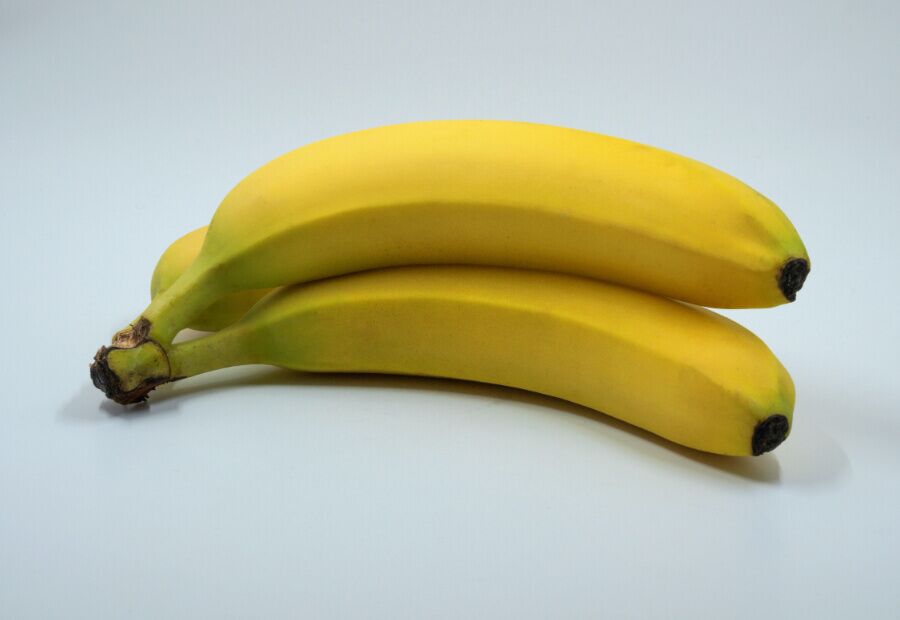
This is an easy one. No matter what sport you’re partaking in, bananas are great. They’re tasty, they’re light, quick to eat and most importantly, they’re high in carbohydrates. Eating on before your run will deliver you vital energy to keep going during your run.
Furthermore, they’re also full of potassium. When you sweat a lot on your run, you’re losing valuable minerals such as potassium, sodium, magnesium and chloride. These minerals are valuable because they’re the key to healthy muscle contraction, maintaining blood pressure, stabilizing blood sugar and regulating fluid balance. The banana helps keep that potassium level topped up.
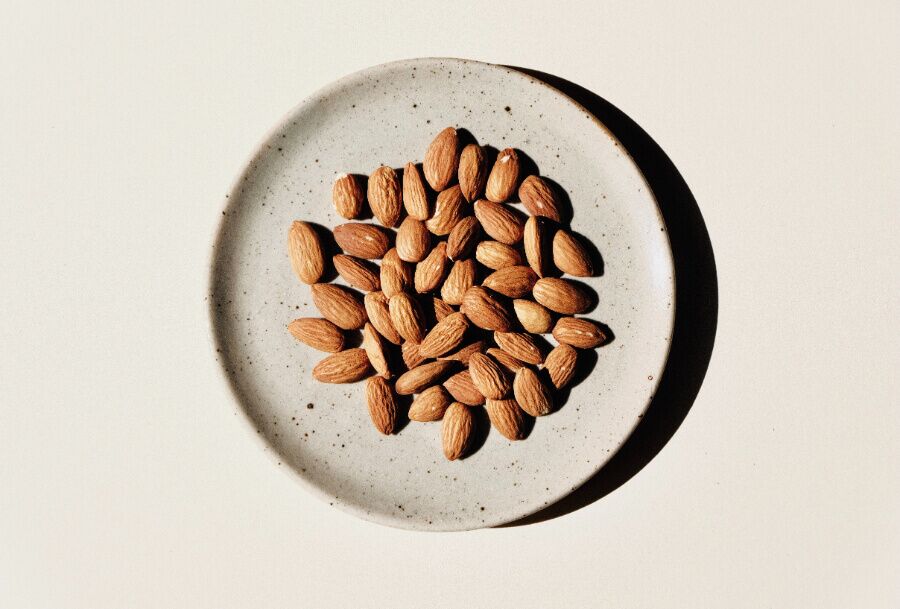
Almonds and many other nuts like them are great for runners. They’re a great source of vitamin E – an antioxidant that runners often lack. They’re also full of magnesium, iron, calcium and potassium (perfect to replace what’s being lost through sweat).
Consuming almonds a few times a week can help in reducing muscle damage, strengthen bones and help boost your energy on the run.
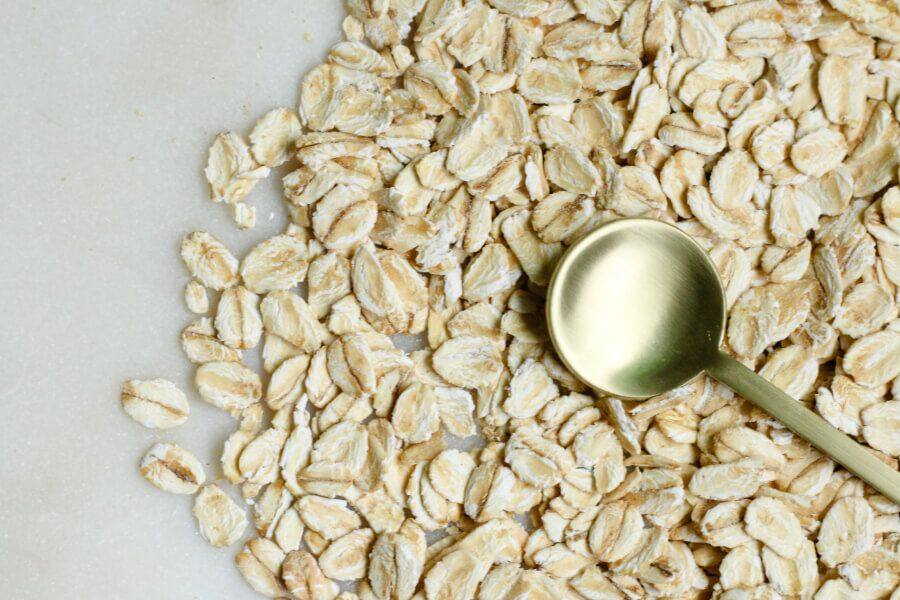
Perfect for those who love to run after breakfast in the morning! Oats provide you with a tonne of carbs and are also high in soluble fiber and protein. Their low glycemic index ensures that your blood sugar level rises slowly, providing you with energy over the course of your run. It’s like operating your phone while charging it – you’ll never run out of energy because there’s a steady supply. Meanwhile, you’ve also got a dose of vitamin B alongside other minerals and antioxidants!
When cooked as porridge, they’re easy to consume and act as a great base layer for you to add in other healthy runner-friendly options such as bananas and raisins.
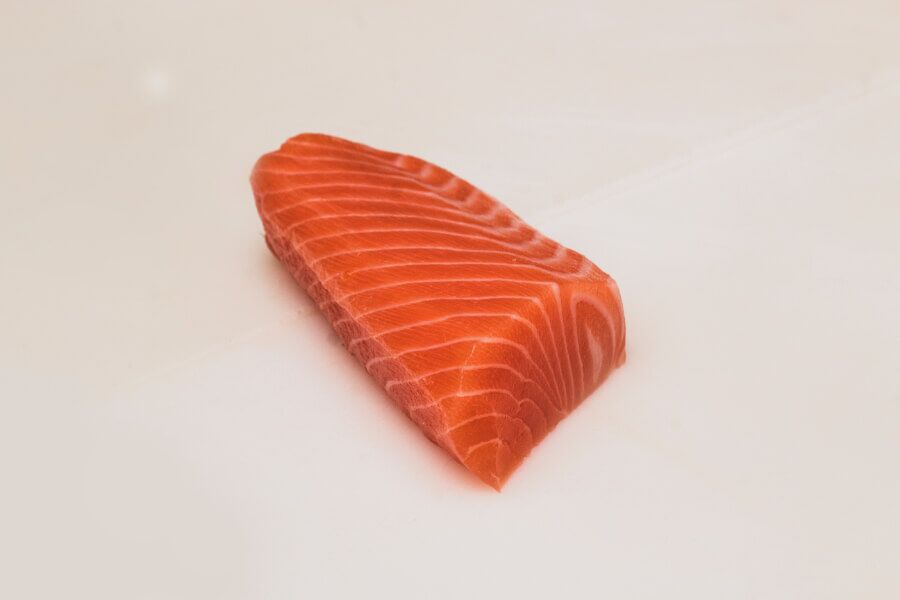
Who can say no to a lovely piece of salmon? Runner certainly shouldn’t. This fish is packed full with omega-3 fatty acids – a nutrient that’s linked to a variety of things such as improving heart and lung health, strengthening your joints and also boosting your immune system. Salmon is also a fantastic source of protein – the vital factor in muscle growth that helps the process of replacing damaged muscle tissue.
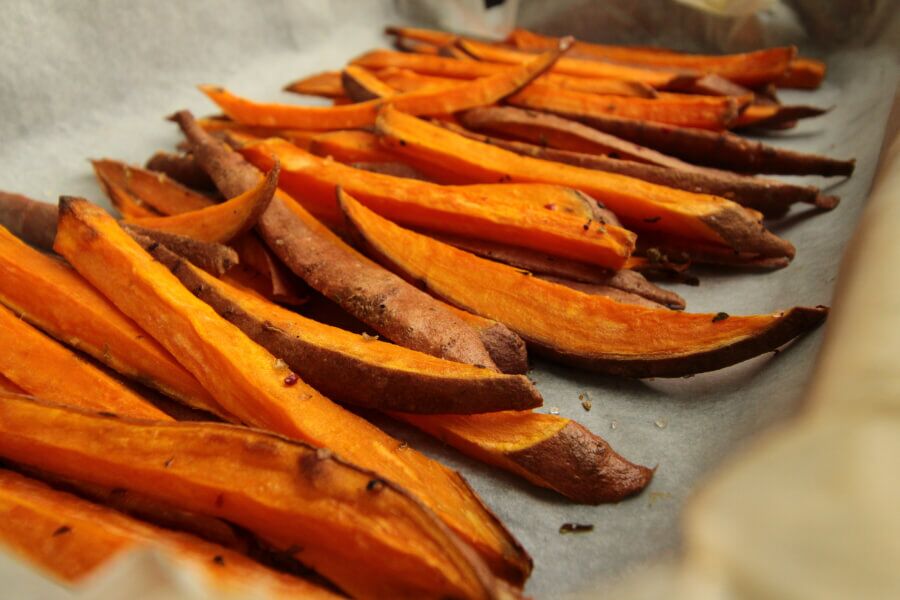
These are not to be missed. Did you know that just one sweet potato covers your entire daily requirement of vitamin A? This will improve your eyesight, strengthen your bone tissues and boost your immune system. It comes in the form of beta-carotene – a very powerful antioxidant. They’re also a great source of vitamin C, as well as the usual necessary minerals such as potassium, iron, manganese and copper (the latter two here are imperative for healthy muscle function).
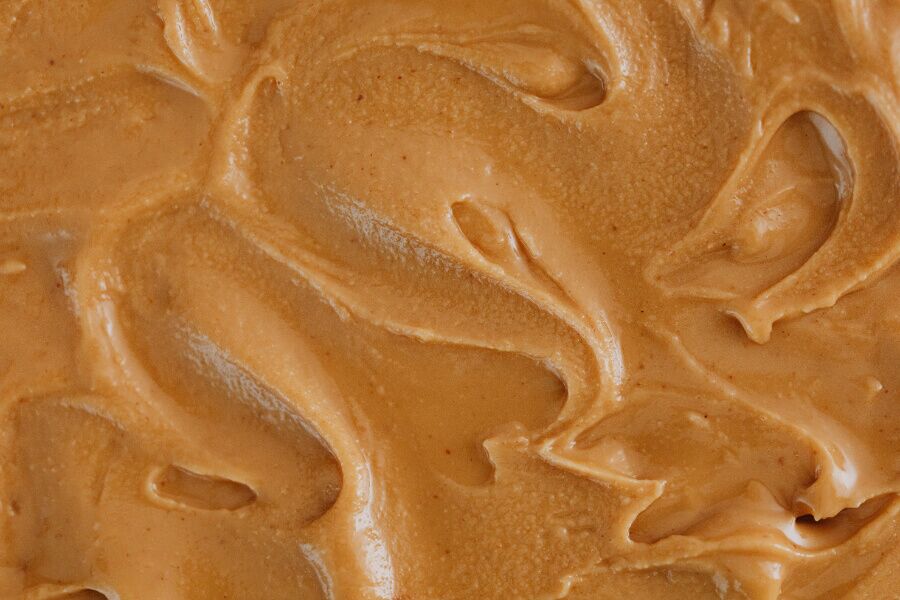
You may be delighted to hear that peanut butter is a fantastic option for runners! Note – this does have to be pure peanut butter without additives like sugars, oils and salts. If you can find the right stuff, it’s a great source of vitamin E, as well as monounsaturated and polyunsaturated fatty acids. These help lower cholesterol levels in your blood and they’re also important for strengthening your immune system, speeding up post-run recovery times and preventing injury.
Peanut butter has plenty of protein while also being a great source of niacin and folic acids, both of which help to convert food into energy. Additionally, they’re dense in calories, ensuring your energy levels are maintained throughout the run.
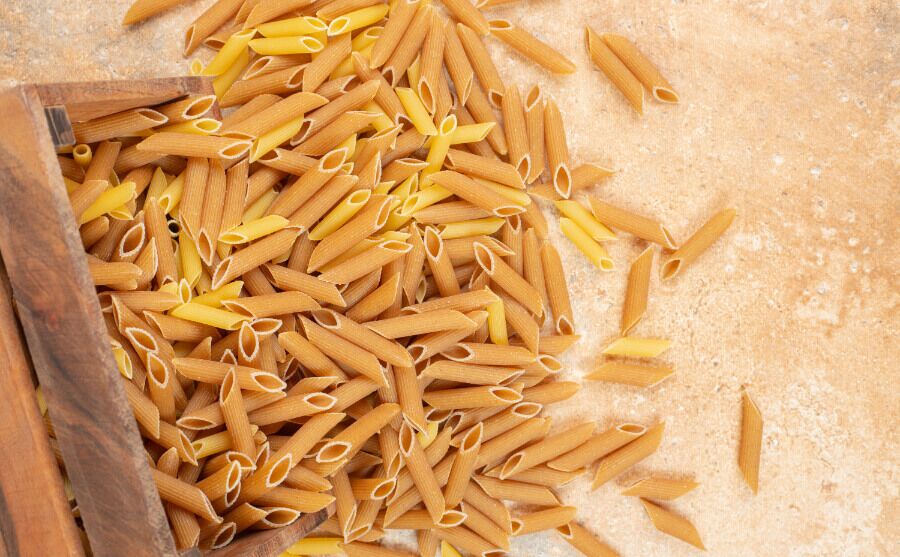
Whole grain pasta is a must. In fact, if you’re in the race scene, you may already be aware of people holding ‘pasta parties’ the night before a race (yes, really)! Whole grain pasta is brilliant for runners because it’s chocked full of easily digestible carbohydrates that fill up your glycogen stores, providing you with slow-releasing energy throughout your run. It’s important to go for the whole grain option because these types of foods are less processed, meaning they retain more nutrition from the grain.
Going for whole grain pasta ensures that you’ll get more nutrients, vitamin B (like bananas), fibers (helping you to feel fuller for longer), zinc, iron, magnesium and manganese. Oh – how about those healthy omega-3 fats found in salmon? And egg whites that aid vital muscle repair and recovery? There really isn’t much that whole grain pasta can’t do! It should be on every runner’s plate week in, week out.
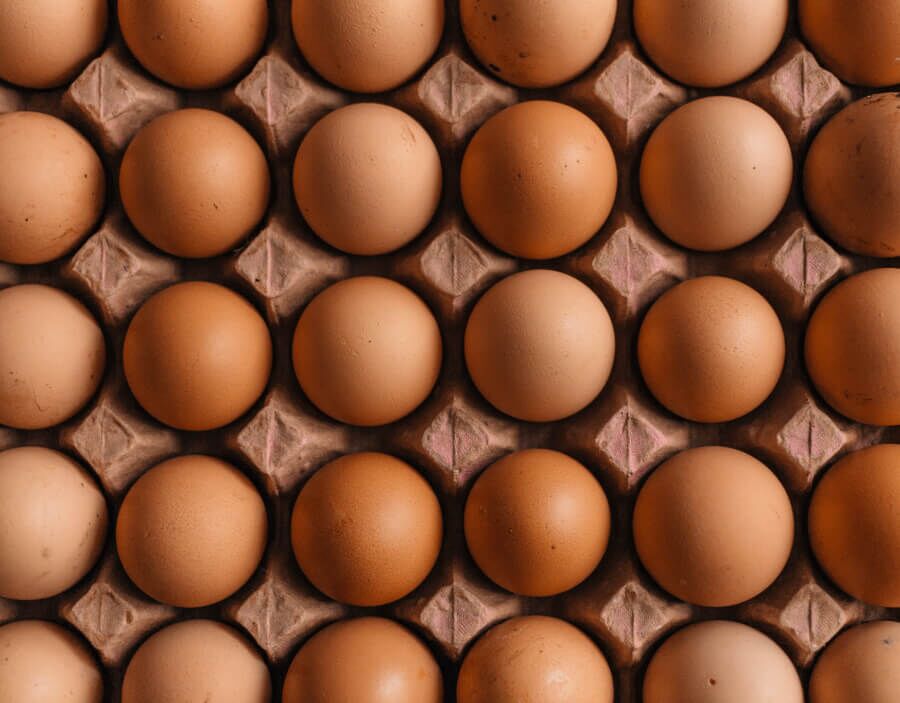
Another one for the morning runners, or perhaps an omelette for lunch? Eggs are fantastic for so many different reasons.
Just one egg gives you 10% of all your daily protein needs. It’s the most complete food protein out there actually (apart from human breast milk). Inside this high-quality protein is all of the amino acids necessary for your muscles to promote their recovery and repair processes. Aside from vitamin C, eating two eggs a day can provide between 10% to 30% of all your vitamin requirements! That includes vitamin K, which is a vital component for healthy bones. If you don’t eat eggs, you really should.
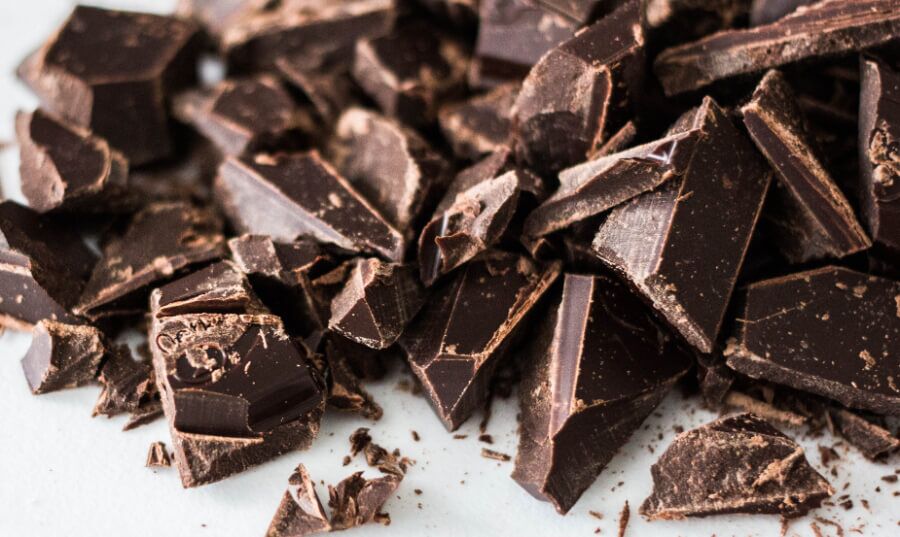
As a runner, you could argue that you’re entitled to treats more than others! Dark chocolate is a fantastic option. It’s been proven to lower blood pressure and cholesterol levels as well as help in reducing inflammation. It’s also thought that the caffeine found in dark chocolate can help fuel you for longer, helping you to run further.
Just to make the deal even sweeter, research has found that dark chocolate also helps improve your efficiency in using oxygen. Over the course of three months, people consumed 20 grams of dark chocolate. By the end of the experiment, they were experiencing a 17% increase in their oxygen use efficiency! It’s thought that a flavanol in cacao helps the mitochondria (the powerhouse inside your cells) to function more effectively.
Of course, you do need to be careful with portion size (sorry to burst your buble). Just two or three squares of the stuff is all you really need. If you can get a bar with almonds and other nuts in, even better.
Understanding Spices
Spices have long been integral to the UK's culinary landscape, adding depth, flavours, and richness to a myriad of dishes. From the pungent aroma of cumin in Indian curries to...
Read MoreUnderstanding Spices
Confetti is an essential part of any wedding day. Not only is it a wonderful way to greet a newlywed couple, but it also provides some beautiful photo opportunities. The...
Read MoreSeasonal Ideas
It’s no secret that any handmade gift will always be more special than a store-bought one. Homemade food gifts are especially wonderful, a labour of love that shows someone you...
Read MoreHealth and Wellbeing
It’s no secret that winter’s cold and gloomy weather makes us crave indulgent dishes like fondue and baked goods like sticky toffee pudding and apple crumble. While Christmas is the...
Read More